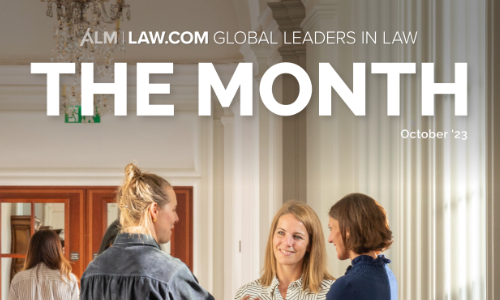Martin

March 12, 2024 | New York Law Journal
Cruel but Not Unusual: The Sentence Recommended for Sam Bankman-FriedJohn S. Martin, former district judge and U.S. attorney for the Southern District of New York, presents his take on the U.S. Probation Department's recommended 100-year sentence for Sam Bankman-Fried.
By John S. Martin
6 minute read

March 04, 2024 | New York Law Journal
The Deadly Force 'PIT Maneuver' CaseFourth Amendment law provides that police use of force during an arrest, stop or other seizure must be reasonable. Despite the seemingly straightforward nature of the reasonableness standard, §1983 excessive force claims often generate many difficult issues. The recent decision in 'Sabbe v. Washington County Board of Commissioners' illustrates some of these issues.
By Martin A. Schwartz
13 minute read

February 27, 2024 | New York Law Journal
'The Resource Group International v. Chishti'In 'The Resource Group International v. Chishti', the Second Circuit considered the propriety of a pending arbitration and whether being improperly forced to arbitrate can satisfy the requirements for a preliminary injunction. It vacated and remanded the district court's order denying a motion for preliminary injunction that would have stayed the arbitration.
By Martin Flumenbaum and Brad S. Karp
8 minute read

February 14, 2024 | New York Law Journal
'Yellowstone' Injunctions: Navigating the Wild West of Commercial Lease DisputesYellowstone injunctions are implicated in many leases for commercial real estate property in New York State, however most landlords and tenants do not know what it is or how it affects them. This article offers an overview of their implications so that commercial landlords and tenants can better navigate lease disputes.
By Janet Kljyan and Charles F. Martin III
6 minute read

January 30, 2024 | New York Law Journal
Injury-in-Fact in Discrimination CasesThe Second Circuit, in a rare en banc ruling, unanimously held that plaintiffs alleging discriminatory treatment in violation of Title IX had sufficiently alleged an injury-in-fact for standing purposes. But the court diverged on a number of other standing issues. The splintered nature of the court's opinions illustrates the underlying tension between ensuring access to courts and enforcing appropriate limitations on judicial power.
By Martin Flumenbaum and Brad S. Karp
8 minute read

December 29, 2023 | New York Law Journal
Timeliness of Section 1983 Sexual Abuse of Minor ClaimsIn 2019, the New York Legislature enacted the Child Victim's Act, which revived claims of sexual abuse against a child who was less than 18 years old when the abuse occurred that were barred by the statute of limitations. The statute clearly applies to claims based on New York state law, but does the New York law also apply to §1983 claims?
By Martin A. Schwartz
10 minute read

December 27, 2023 | New York Law Journal
Expanding Free Exercise ClaimsIn Kravitz v. Purcell, the Second Circuit considered whether incarcerated plaintiffs must show a substantial burden on their religious beliefs to prevail on free exercise claims under U.S.C. 42 §1983.
By Martin Flumenbaum and Brad S. Karp
7 minute read

December 12, 2023 | New Jersey Law Journal
The 'TDF' Litigations—Deconstructing Product Liability LawLegal liability for the manufacture and sale of dangerous products can arise in different ways. Consumers harmed by such products often suffer significant property loss and/or grievous personal injuries and assert claims under the New Jersey Products Liability Act. Plaintiffs in Products Liability Act cases can be, but sometimes are not, purchasers of the products that caused them harm.
By Martin P. Schrama, Stefanie Colella-Walsh and Jack Rutherford
9 minute read

November 21, 2023 | New York Law Journal
Expanding the Scope of 'Securities-Related' Exception to the Class Action Fairness ActIn 'Krasner', the Second Circuit considered whether the securities-related exception to the federal jurisdiction conferred by CAFA prohibited removal to federal court of a class action alleging aiding and abetting the breach of fiduciary duties and tortious interference claims. This decision is another instance where the circuit has adopted an expansive interpretation of the exception.
By Martin Flumenbaum and Brad S. Karp
7 minute read

November 13, 2023 | Global Leaders in Law
The Month - October EditionIn this edition of The Month we explore the economic importance of diversity.
By Amanda Martin
0 minute read
Trending Stories
- 1How Legal Aid and Tech Collaboration Can Bridge the Justice Gap
- 2The Rise of AI-Generated Deepfakes: A New Cybersecurity Threat for Law Firms
- 3Litigation Leaders: Labaton’s Eric Belfi on Running Case Investigation, Analysis and Evaluation In-House
- 4Spoliation Sanctions
- 5At FDA, Flavored Vape Products Go Up In Smoke
More from ALM
- Legal Speak at General Counsel Conference East 2024: Match Group's Katie Dugan & Herrick's Carol Goodman 1 minute read
- Legal Speak at General Counsel Conference East 2024: Eric Wall, Executive VP, Syllo 1 minute read
- Legal Speak at General Counsel Conference East 2024: Virginia Griffith, Director of Business Development at OutsideGC 1 minute read



